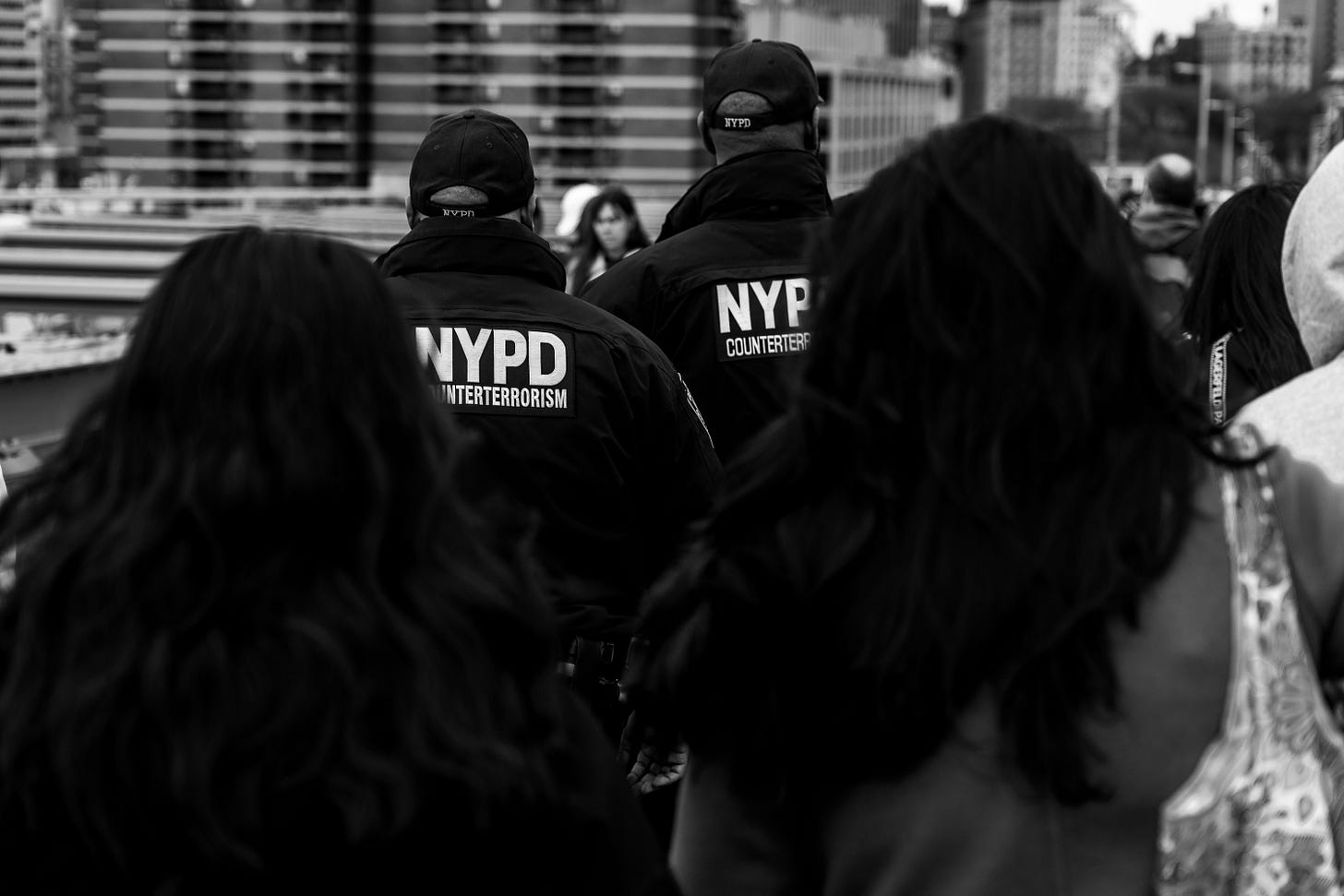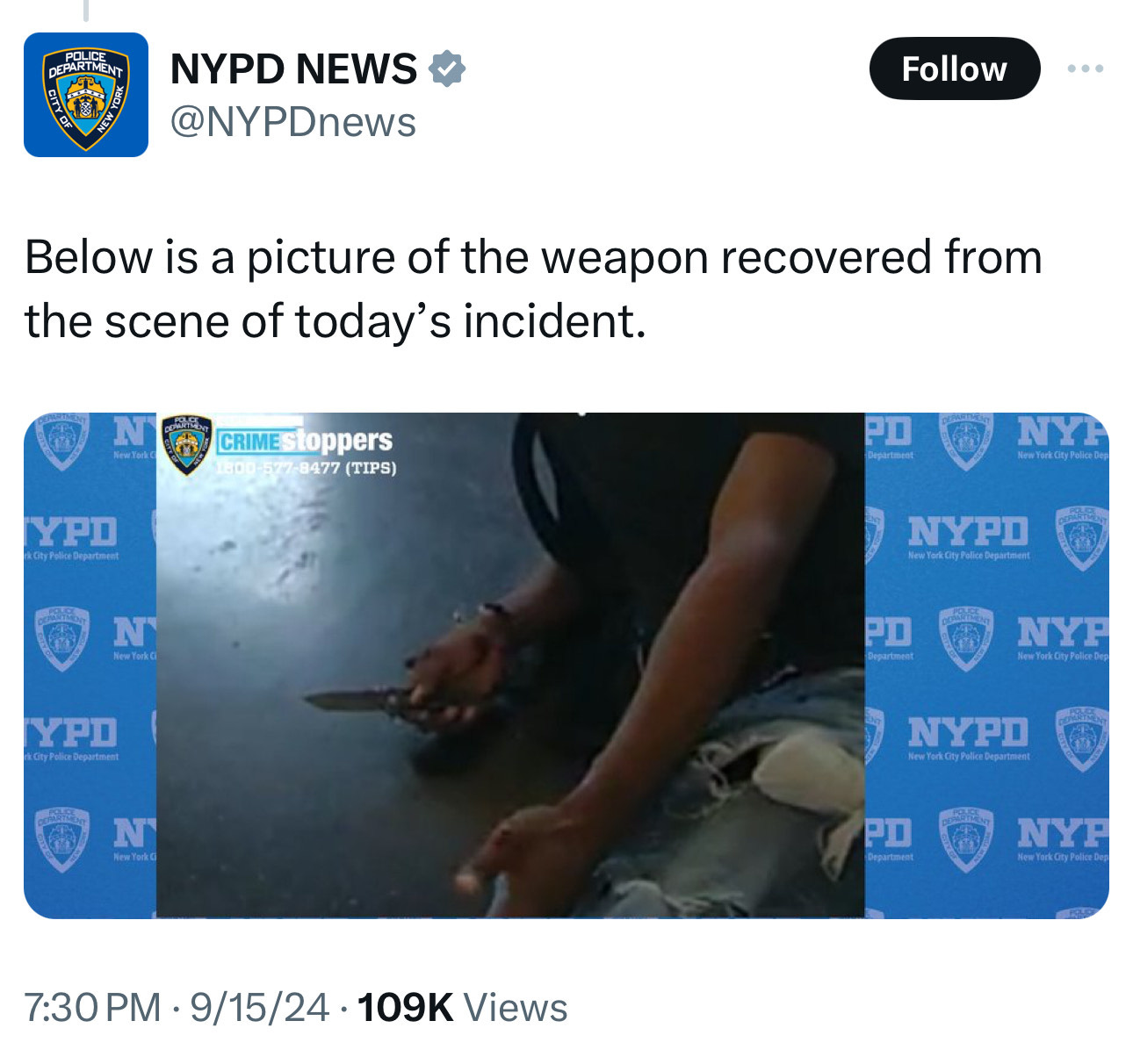Federal Probe Targets NYC Mayor Eric Adams: Corruption Allegations and Police Misconduct Shake City Hall
Investigation Expands to Include Seizure of Phones from Adams’ Administration, Implicating NYPD Amid Subway Shooting.
New York City Mayor Eric Adams is under multiple federal investigations following allegations of corruption tied to illegal campaign donations.
The ongoing investigations, including three being led by prosecutors in the Southern District of New York, have resulted in federal raids on the NYPD, the Metropolitan Transportation Authority (MTA), and the seizure of electronic devices. Following an investigation into his brother, NYPD Commissioner Edward Caban resigned, amid other growing concerns of police misconduct after officers fired at an alleged fare-evader in a crowded subway station, resulting in a bystander being shot in the head.
Background of Investigation
FBI agents began their investigation in November 2023 following a raid into the Brooklyn home of campaign consultant Brianna Suggs, a top fundraiser for Adams. That same day, Federal agents searched the New Jersey home of Rana Abbasova, the international affairs aid for Adams. The mayor, who was having meetings with White House officials on immigration, immediately returned to New York from Washington, D.C to “address the matter.”
According to ABC News, the investigation involved Brooklyn based construction company KSK Construction Group in Williamsburg. KSK donated $14,000 to Adams’ 2021 campaign.
The FBI later seized Mayor Adams’ electronic devices, including an iPad and a phone. This was in connection with KSK as Federal agents were seeking to determine whether the mayor’s campaign received foreign donations from Turkey with KSK being a conduit. Agents later searched the Bronx residence of Winnie Greco, Adams’ director of Asian affairs.
Federal prosecutors in New York served Adams grand jury subpoenas in July as part of a corruption investigation involving whether his campaign accepted illegal donations from Turkey to pressure the fire department into rushing an inspection of the Turkish consulate in New York City.
In an interview with WABC, Adams denied any wrongdoing,
"Like previous administrations that have gone through subpoenas, you participate and cooperate. You see a subpoena, and you respond. At the end of the day, it will show there is no criminality here,” said Adams.
The subpoenas aimed to seek communications and documents from the mayor amid the investigation.
Key Developments
After the subpoenas were issued over the summer, the FBI searched the homes of Adams’ closest aides in early September. Federal agents searched the homes of brothers David and Phil Banks, who both known Adams for years. Agents also searched the Manhattan home of First Deputy Mayor Sheena Wright, who is engaged to David, who is the Schools Chancellor. During this search, FBI agents seized evidence including personal electronics.
The investigation into the case expanded to include the NYPD after federal investigators seized the phones of four high-ranking New York Police Department officials, including now-former NYPD Commissioner Caban. Another advisor close to Adams, Tim Pearson, also received a subpoena for his phone. Caban’s brother, James, a former police officer, was under investigation by the IRS for allegedly receiving payments from clubs in Midtown Manhattan and Queens to act as a police liaison. Investigators are examining whether the NYPD enforced crackdowns on clubs that did not engage with Caban’s brother or provided special benefits to those that did.
Caban resigned as police commissioner last Thursday and emphasized his decision in a statement,
"My complete focus must be on the NYPD -- the Department I profoundly honor and have dedicated my career to serving. However, the noise around recent developments has made that impossible and has hindered the important work our city requires. Therefore, I have decided it is in the Department's best interest that I resign as Commissioner,” said Caban.
Former FBI agent and former New York Homeland Security Director Tom Donlon was appointed as interim commissioner.
Two days later, City Hall chief counsel Lisa Zornberg resigned after 13 months in the position. There was no explanation for her resignation from Adams’ administration.
Following her resignation, retired chiefs Brian Cordasco and Anthony Saccavino from the New York City Fire Department were arrested at their homes on allegations of bribery in relation to the corruption investigation.
According to reports by NBC News, the two accepted $190,000 in bribes in exchange for expediting inspections while they were running the department’s Bureau of Fire Prevention, which regulates the installation of fire safety and suppression systems in buildings.
Both Saccavino and Cordasco were charged with conspiracy to solicit and receive a bribe, solicitation and receipt of a bribe, and making false statements to federal officials.
They both pleaded not guilty to the charges.
Shooting in the Subway
Following Caban’s resignation, the NYPD came under further scrutiny after officers opened fire in a crowded Brooklyn subway station on Sunday during a confrontation with a suspected fare evader.
According to reports, 37-year-old Derell Mickles entered the Sutter Avenue station in Brownsville, Brooklyn shortly after 3 p.m. Officers followed Mickles – up three flights of stairs before a confrontation occurred. Officers opened fire in the crowded station after suspecting that Mickles had a knife. He was shot in the stomach and is in critical condition.
However, Gregory Delpeche, a hospital administrator who was on his way to work, was struck in the head and is also in critical condition. A 26-year-old woman was also grazed by a bullet, according to reports.
Public Reactions
Adams and the NYPD were scrutinized by community leaders following the shooting. In a report by CBS News, various activists expressed their anger,
"The fact that they went into the subway car and shot in the midst of people on the platform ... shows that they are unhinged and unmanaged," said Omowale Clay, chair of the December 12th Movement.
Family members of Gregory Delpeche, the bystander in critical condition, held a press conference calling for an investigation of the shooting,
“There's no reason why he should not make it to work,” said Gregory Nougues, a cousin of Delpeches in a report by Gothamist.
“I believe that the NYPD was reckless in dis[charging] their guns in front of citizens. And I think there should be an investigation.”
Adams defended the officers’ actions and blamed Mickles, the fare evader, during a Tuesday press conference.
"It's just unfortunate that innocent people were shot because of that, but they were shot because they had a dangerous repeated offender on our subway system.”
NYPD Chief of Department Jeffrey Maddrey said in a report by the BBC that body camera footage showed the suspect threatening the officers, before attempting to tase Mickles to no avail, officers then opened fire,
"At one point, he is advancing on one of the officers with his knife," said Maddrey,
“The officer stands back, he draws his weapon, and both officers at this point fire.”
Officials later mentioned the fact that Mickles had a record of 20 previous arrests and a history of mental health struggles.
NYPD Officials said on Sunday that the knife was recovered from the scene in a Twitter (X) post. However, the police backtracked on another post Monday afternoon and said that a man was being pursued for allegedly taking the knife from the station and fleeing shortly after.
However, many bystanders are saying that they have never seen Mickles have a knife at all and that officers escalated the confrontation by tasing him.
In an interview, David LaFauci, a bystander who had seen Mickles recalled that day,
“I never saw a knife, but I don’t think I saw both of his hands,” said LaFauci
“He was walking away when they tased him, definitely, I heard a bunch of pops, probably about eight, nine shots.”
LaFauci later said that he heard officers at least once tell Mickles to drop a knife.
Protests later broke out following the growing outcry and outrage following the shooting, including 16 people being arrested Wednesday night following a march from Union Square to Washington Square Park. Protests have also been erupting at the Sutter Avenue subway station where the shooting occurred, with protestors starting at the station in Brownsville before moving to the NYPD’s 73rd Precinct.
Gregory Delpeche, the bystander who was shot in the head, went under emergency surgery to reduce his brain swelling from the gunshot wound.
“Right now he’s breathing through a tube,” said Nougues in an update to the Associated Press. He also said how the family is currently in a “waiting game.”
NYPD Chief of Patrol John Chell dismissed the demands of the protestors in an interview with FOX New York as “A narrative that we shot somebody over a $2.90 fare, which is wrong and, quite frankly, irresponsible,” said Chell.
Implications
While the taser deployment on Mickles was an attempt to subdue the suspect, a report by The Independent showed that tasers can escalate situations, leading to deadly force. An APM Reports investigation revealed that tasers are unreliable up to 40% of the time. Furthermore, a 2016 study from the Los Angeles Times found that nearly a quarter of people shot by the LAFD in 2015, were wounded or killed in situations where a taser was deployed unsuccessfully.
Further studies from The Independent revealed that the NYPD has been the center of many lawsuits over the past decade for incidents involving tasers being used. Including a notable case involving the killing of Jah’Lire Nicholson, a resident from Queens.
According to the lawsuit, Nicholson was holding a screwdriver when officers arrived but was not instructed to drop the screwdriver, officers fired taser barbs in Nicholson’s direction however he was able to dodge the taser, an officer shot and killed Nicholson after.
The case was later settled for $962,000.
Jennvine Wong, a supervising attorney with the Legal Aid Society’s Cop Accountability Project, said in an interview how tasers should be included in the debate about police force.
“I think that there has to be a reconsideration of what is proportional use of force by officers,” said Wong.
“While training has obviously a huge part to do with that, there’s still a portion of policing culture that has to do with how an officer approaches the use of force.”
The federal investigations into Mayor Eric Adams’ administration and the NYPD have revealed a new light on allegations of misconduct and corruption within New York City’s leadership. From campaign donations to use of force, these developments unveil new tensions between NYPD and community leaders, and instability in the mayor’s office. As the investigation continues, the implications for both Mayor Adams and the NYPD are far-reaching, with protests and calls for systemic change. The outcome of these investigations will not only determine the future of Mayor Adams' administration but could also shape the course of police activity in New York City for years to come.






